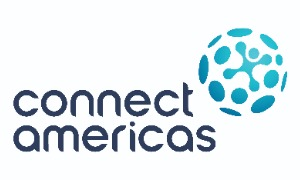What must businessmen take into account to export successfully? First, of course, they must have full confidence in the company’s ability and the product features. But this is not enough. To adequately export their products, businessmen must be knowledgeable about the characteristics of the target market.
In this regard, the Inter-American Investment Corporation explains that SME (small and medium enterprise) managers that seek to internationalize their business must conduct a “market intelligence” research. This analysis aims to “detect changes in international markets and anticipate future changes,” so as to adapt the company’s strategies to the environment.
What are the benefits of gathering market intelligence?
According to the IIC, market intelligence is relevant to companies because global commerce is usually one step ahead of GDP (Gross Domestic Product) growth. International trade is also an important development source for small companies and successful exporters need to understand their markets in order to make the correct decisions. The more knowledge that a businessman has of his business, the higher the possibilities of success.
In addittion, the lack of information can also lead to a waste of time and effort, to a lack of productivity, to lose markets or failure to adapt to the changes taking place worldwide.
What type of information should be gathered?
Upon conducting a market study businessmen must first ask what is happening in a particular market. Is there growth, stability or decline? Secondly, what are the main actors doing? Are they investing, retiring or reinforcing their presence? Third, what are the market risks and opportunities? And finally, how does demand evolve over the short, medium and long term?
Among relevant data to answer these questions, at a national level, will be the market trends (e.g., new market niches), access barriers (tariff and non-tariff) and required certifications and standards. Likewise important is to have knowledge on sanitary and phytosanitary regulations, the existence of product certifications and ecological label types. It will also be important to know about national packaging and labeling requirements in place.
As to the consumers, it will be important to know the consumption preferences of the population (size, packaging, flavors, designs, etc.) Other important information to consider is if consumers have “sustainability” concerns in regard to products. The geographic distribution of consumption is also relevant: is it concentrated or disperse? What are the main points of sale? Is it more advisable to sell in large companies, supermarkets or chains or in small shops? Does e-commerce work in that market?
Answers to all these questions can be divided into two pieces of information: quantitative (expressed in numbers) and qualitative (more descriptive, non-numeric). The IIC document states that quantitative data is easier to analyze and offers a “global vision” for determining attractive markets but is not good for a “detailed vision” Qualitative data, in turn, is harder to collect and analyze but offer the producer a detailed idea of the target market and its consumers.
How to gather good market intelligence
A first option for obtaining this information is to purchase specialized market reports or to commission specific market studies. A second option consists of directly researching the field and visiting the market. It is also possible to open representation offices in the target market to collect information.
However, these options are all relatively expensive. The IIC suggests cost-effective alternatives for collecting information, such as calling acquaintances that might be able to help, to contact the local target-market community, to conduct telephone surveys or to carry out intense research on the Internet. It is also possible to contact foreign trade representatives in the country or obtain information from export country Embassies in the country of origin. Chambers of commerce and International aid institutions can also provide useful information.



Follow Us